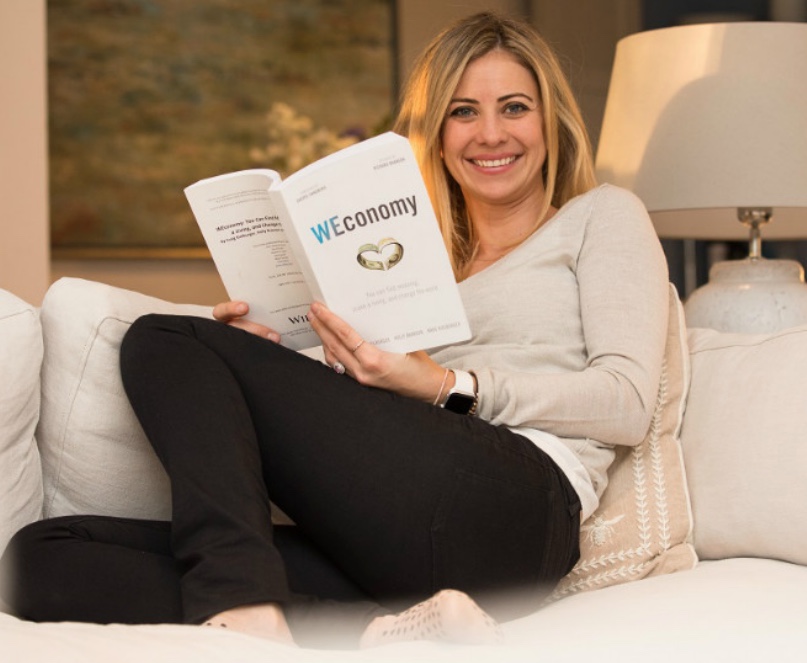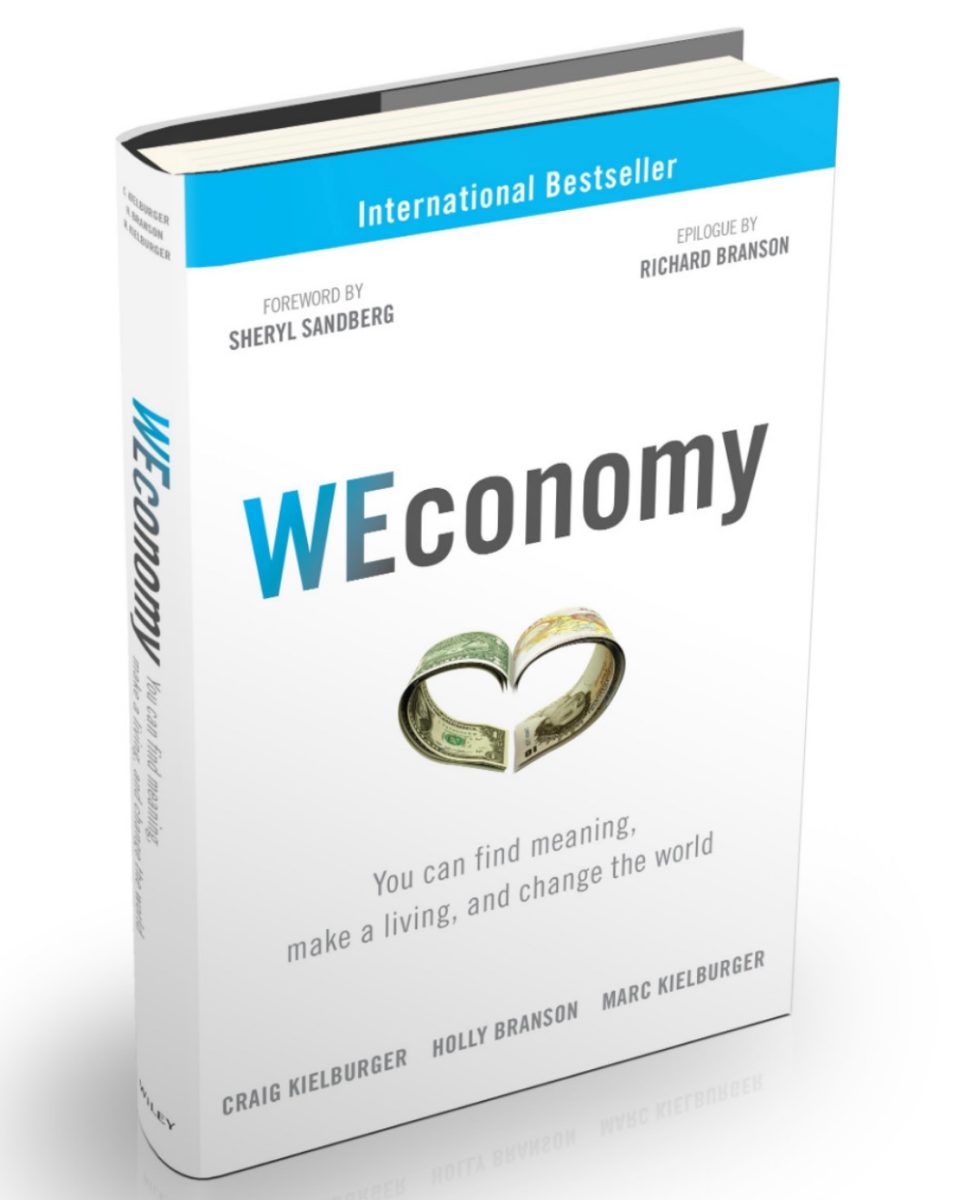The Game Changer Interview: Holly Branson
Epicure talks to the multi-faceted Holly Branson about how she juggles life as doctor, philanthropist, wife and mother along with the power of connecting purpose and people.
In addition to playing a pivotal role at Virgin, you are a doctor, philanthropist, wife and mother — how do you balance it all?
Like millions of other working women, I just get up in the morning and get on with it. I no longer practice as a doctor, but working full-time as a member of the Virgin Group leadership team, a trustee of Big Change, chair of Virgin Unite and the mother of two three-year-olds can be demanding at times! But I love what I do and I genuinely think being in a job that you love makes all the difference when it comes to work-life balance. You can be part of a close-knit, loving family but if you aren’t finding purpose at work, achieving that balance can be really difficult. I am lucky to be surrounded by the most amazing people both at work and at home — it’s important not to think you can do everything on your own — we all need a support network in our lives. If you are struggling to find balance, reach out to friends, family, or colleagues and ask for their advice and support.

You started at your dad’s company as an intern — what was that like?
My internship changed the whole course of the life I had planned, so I think it was pretty remarkable! It was incredible working with so many of the big Virgin businesses when I started out on what was meant to be a year-long internship (I had taken a year out from medicine to learn more about business and management). I worked with amazing teams across Virgin Atlantic, Virgin Money, Virgin Media and Virgin Trains. After a year, I wanted to learn more. After two years I knew I needed to learn even more. After three years I finally admitted to myself that I would not be returning to medicine.
Having had the opportunity to work across such a diverse portfolio of businesses, I came to understand that each Virgin business is part of an ecosystem, totally dependent on its social and environmental landscape. From the incredibly smart group of people I worked with, I learned to define business in the simplest terms: as something that creates value by making radical positive change through products and services. They taught me that working towards a better world as a business does not have to be detrimental to your success — in fact, it can boost that success — it was an incredible lesson to learn so early in my career in business.
For the past decade you have been embedding purpose at the core of the Virgin business. How can other leaders implement purpose into their organisations?
The first thing we did at Virgin when we started embedding purpose in to all areas of our business was to ban the letters CSR. We wanted to send a clear message to all of our people that we’re taking a very different approach. It’s great to start with a bold statement so your people know you are serious. We then embarked on a strategy to examine every aspect of our business, ensuring we make a positive impact by putting purpose at the heart of what we do.
We came up with what we like to call our ‘Purpose Barometer’. A simple way for a company to judge its own barometer is by asking the following questions:
- Are you doing the best you can for your people?
- Are you making it easy for your customers to make good choices?
- Where does your business fit into your local and global community? Does it help or harm it?
- Have you analysed your supply chains?
- Are you doing your bit for the environment?
If your Purpose Barometer swings towards the negative, then you know you need to take steps to reverse that trend.
A responsible and successful business in the future will equally prioritise its people, its supply chain, its customers, its community and the planet as a whole, so involve everyone who comes into contact with your business in your purpose journey. In turn, you will have loyal staff and customers, as well as a community that respects your business and will recommend it to others.
What makes a hotel great?
A hotel that encourages its staff to see the person, not the reservation number. A hotel can only be great if the management treats its best asset — its staff — as 100% human. I genuinely don’t think it’s rocket science: no matter the size or star rating of the hotel, if you are welcomed and looked after by people who are welcoming and obviously looked after by the hotel they work for, you’ll have a lovely time!

You are founder of the nonprofit Big Change and co-chair of WE Day UK, an event that celebrates socially minded young people. What should others be doing to inspire the next generation of social entrepreneurs?
[Consider] partnering with local organisations or community groups that support and promote a ‘growth mindset’ in young people. We found the perfect partner in WE Charity. Once these young people go on to launch the social enterprises of the future, support those ventures — social enterprises need to be successful, [so] when you find a great one, make sure you shout about it.
What is the best advice your dad has ever given you?
- Treat others the way you would like to be treated.
- Listen more than you talk.
- The best ideas can come from the most unlikely sources.
- Never let fear stop you or you’ll never truly live life to the full.
What are your top travel tips?
I follow Virgin Atlantic’s tips, as I know how passionate they are about travelling well and sustainability.
- Choose an airline with independently verified carbon reduction measures and results.
- Choose a sustainably certified hotel when possible — lots of hotels are now doing more to be green.
- Pack lighter — by only packing what you need, you’ll reduce your travelling weight and that means you’ll reduce fuel usage and carbon emissions. The smaller things help too, like removing the outer packaging from items before you travel. This reduces weight andreduces the burden of waste in other countries — extra important if they don’t have the same recycling opportunities as back home.
- Be prepared — always carry a lightweight reusable water bottle and refill it before you travel instead of relying on bottled water.
- Carry a lightweight, packaway, reusable bag for your souvenirs and beach gear.
- Offset your flight — Virgin Atlantic has partnered with the award-winning Natural Capital Partners to support communities around the world by providing them with cleaner, cheaper, safer renewable energy.
- Go explore — grab a map and walk or cycle instead of taking a taxi. You’ll be amazed at what you’ll discover!
- Live like a local — eat, drink and shop locally. Use public transport too — you’ll reduce your carbon footprint, help support the local economy and learn more about the country you’re visiting.
What have you learned about leadership and mentoring others?
Without diversity, no-one learns anything. When choosing who to mentor or who to be mentored by, make sure you choose someone who has different skills, mindset and background from yourself. It is often easy to go with the familiar — at times that just happens subconsciously — so make an effort to reach out to someone who you can truly learn from. The best leaders are those who surround themselves with people who will challenge them, who they can get different points of views and opinions from, and who can view a problem from all angles.
What are your top packing tips?
Don’t overpack! It should be exciting packing for a holiday, so don’t overthink it. [Include] a few outfits that will take you from day to night, bikinis that you can mix and match, high factor suncream, a good moisturiser, a decent hair protector and you’re good to go. If you are travelling with kids, [include] their favourite teddy, some colouring books and pencils, a kid-friendly tablet and importantly, earphones, so the rest of the plane doesn’t have to listen to Peppa Pig!
In your book, WEconomy, you talk about carving more meaning into your work. What can companies do to inspire their staff to deliver the best results?
I always like to quote Virgin CEO Josh Bayliss when I’m asked this question. Companies often think that having loyal, happy people will cost a fortune in consultancy fees or negatively hit their bottom line. Truly, as Josh says, the right approach costs nothing: “Why should your relationship with your place of work be any different than any other relationship in your life? The best and most rewarding [relationships] are always based on mutual trust and respect. If you want people to be themselves, to be 100% human and bring all of themselves to what they do, you’ve got to respect them. You’ve got to include them in the conversation, be transparent about challenges you are facing and celebrate the highs with them.
Remember, your bottom line is never going to suffer because you took time out to talk, converse and interact with the people who work for (and with) you.

What was your best family holiday memory growing up?
There are too many to pick just one! Whether it was a staycation in Oxford, playing on the beaches of West Wittering with my grandparents or further afield, the very fact that we were all together as a family made every holiday an adventure.

